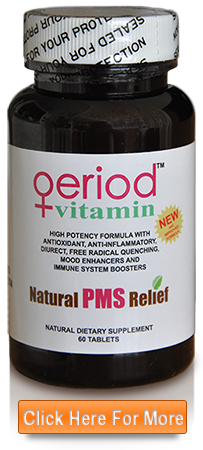What Vitamins Are Good for Menstrual Migraines?
 In a nutshell, the answer to this question is all of them! If you are low in any of the vitamins, then it could be influencing your ability to develop migraines. Vitamins and minerals work together in the body and it’s rare that you will be low in only one of them. Vitamin and mineral deficiencies come in packs.
In a nutshell, the answer to this question is all of them! If you are low in any of the vitamins, then it could be influencing your ability to develop migraines. Vitamins and minerals work together in the body and it’s rare that you will be low in only one of them. Vitamin and mineral deficiencies come in packs.
For example, if you’re low in vitamin C, you are also most likely to be low in vitamin E and vitamin A. These three antioxidants work together in the body. Vitamin C protects vitamin E and A so they won’t be used up in the body. Vitamin E and A do the same. Thus, if you raise one of them without raising the rest of them, you risk causing a deficiency of the others you don’t take.
This is why it’s often best to either take a multivitamin – multimineral to get all the dosages right. By just taking vitamin supplements one by one, it’s guesswork. Ultimately, the best way to know what you should be taking is to see a clinical nutritionist who can balance these for you via what is found in lab tests.
That being said, most women with menstrual migraines may start out with magnesium supplements, around 400 mg per day. The magnesium supplements have clearly been shown in the research studies to benefit many women with migraines, although not all of them. It’s never a surprise that magnesium supplements don’t benefit all women who have migraines because one thing will never help 100% of the people. So when you hear about medical studies that benefit 33% to 60% of the study participants, know that this is always a good thing because it means the researchers have found something in common with many people and found a partial solution.
Another of the supplements or vitamins to take for menstrual migraines is vitamin D and calcium. Studies show that 50 to 75% of the population is low in vitamin D, and a good 33 to 55% are low in calcium. The best vitamins to take though would have not only calcium and vitamin D in them but also magnesium and phosphorus. These four nutrients work together in the body. You cannot absorb calcium without magnesium and you cannot absorb the rest of them without phosphorus. The dosages are 2000 to 5000 IU vitamin D3, depending on vitamin D status, 500 to 600 mg calcium, and half that amount of magnesium and phosphorus.
 What’s the effect of vitamin E on the treatment of menstrual migraine?
What’s the effect of vitamin E on the treatment of menstrual migraine?
Simply stated, it could help. The dosage is 400 IU. This vitamin is helpful to relax the blood vessels, although magnesium is the primary relaxer of the blood vessels.
Herbs provide only minute amounts of vitamins and minerals and the reason why they may help would be because they generally contain medicinal constituents that fill in the metabolic gaps we all have.
A period vitamin is probably the easiest way to get in most of the vitamins and minerals for the day – plus it will also contain some herbs that support your period during the entire menstrual cycle from period to period. It’s taken once daily. It could also contribute greatly to your cessation of migraines.
Start reading up on nutrition and you’ll find it fascinating. It’s also a way for you to be empowered to take care of your own health.



